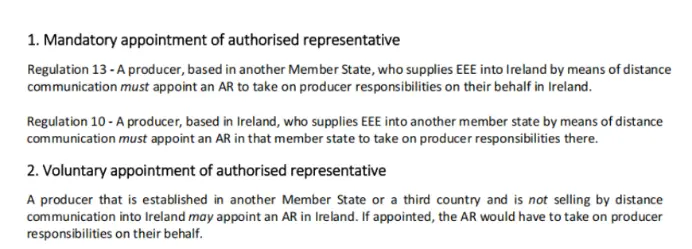
Best Guide to EU Radio Equipment Directive (RED) 2025
Radio Equipment Directive (RED) Guide
The Radio Equipment Directive (RED) is an EU regULation for radio equipment placed on the market. It sets essential requirements regarding health, safety, electromagnetic compatibility, and efficient use of the radio spectrum. The directive applies to devices with wireless communication functions such as WiFi, LTE, 5G, Bluetooth, and GPS.
The latest version of RED also introduces new requirements on USB charging standards, user data privacy, and software compatibility.
1. What Is the Radio Equipment Directive (RED)?
RED is an EU regulation linked to ce marking, requiring that radio equipment placed on the EU market complies with:
a. Health and safety
b. Electromagnetic compatibility
c. Efficient use of the radio spectrum
It also covers:
a. User privacy and data protection
b. Fraud prevention
c. Accessibility to emergency services
d. Compliance of combined hardware/software devices (e.g., wireless headsets)
2. Scope of Products
Examples of Covered Products:
a. Mobile phones, laptops, smartwatches, routers
b. Radar equipment, broadcasting devices, fitness gear
c. Electronic devices with WiFi, Bluetooth, or GPS
Exempted Equipment (see RED Annex I):
a. Amateur radio equipment
b. Marine equipment
c. Aviation equipment
d. Custom-built evaluation kits
3. Harmonized Standards
Using harmonized standards is the most straightforward way to demonstrate RED compliance.
Example Standards:
a. EN 55035: Electromagnetic immunity for multimedia equipment
b. EN 300 433: Short-range radio devices in the 433 MHz band
c. EN 301 908-15: IMT cellular repeaters
d. EN 303 204: Fixed short-range devices (870–876 MHz)
e. EN 303 348: Audio induction loop drivers
4. Essential Requirements (Article 3 of RED)
Radio equipment must:
a. Protect the health and safety of people, pets, and property
b. Demonstrate electromagnetic compatibility
c. Use the radio spectrum efficiently and avoid harmful interference
Some devices must also:
a. Include a USB Type-C interface
b. Safeguard user privacy
c. Allow access to emergency services
5. Conformity Assessment Procedures (Article 17 of RED)
Manufacturers may choose one of the following:
a. Module A (Internal Production Control)
1. Applicable when harmonized standards are used
2. No involvement from a Notified Body required
b. Module B + C (EU-type Examination + Internal Control)
1. For partial or no use of standards
2. Requires an EU-type examination certificate from a Notified Body
c. Module H (Full Quality Assurance)
1. High degree of manufacturer control
2. Includes quality system and Notified Body involvement
6. Documentation Requirements
Declaration of Conformity (DoC) Should Include:
a. Product type and serial number
b. Manufacturer information
c. Applied standards and versions
d. Notified Body details (if applicable)
e. Signature and date
Simplified DoC:
a. Short statement confirming RED compliance
b. Link to full DoC online
Technical Documentation Should Include:
a. Product description and installation instructions
b. Design drawings and parts list
c. Explanation of applied standards
d. Test reports and calculations
e. EU-type certificate copy (if applicable)
User Manual:
a. Product usage instructions
b. Frequency bands and power levels
c. Charging specifications
d. Regional use restrictions
7. Labeling Requirements
ce marking:
Must be clearly and permanently affixed to the product or packaging
Notified Body Number:
Required under Module H, placed next to the CE mark
Traceability Information:
a. Batch/serial number
b. Manufacturer name and address
USB Type-C Labeling:
a. Specify charging power range (XX–YY)
b. If USB PD supported, mark "USB PD"
c. Use official icons to indicate charger inclusion
8. Laboratory Testing
Manufacturers and importers usually need lab testing to demonstrate compliance.
Example Test Methods:
a. EN 303 084: GBAS VHF ground-to-air systems
b. EN 301 841-3: VDL Mode 2 digital aeronautical communications
c. VDL Mode 4: Spectrum testing methods
Example Labs:
China JJR
Intertek
SGS (Switzerland)
TÜV SÜD
9. Compliance Risks
Non-EU manufacturers often lack RED compliance experience. To ensure lawful import and market placement, you should:
a. Identify applicable EN standards
b. Prepare a Declaration of Conformity
c. Create technical and user documentation
d. Conduct laboratory testing
e. Handle proper labeling and marking
Note: Never assume a high-quality product is automatically compliant. Full conformity with RED is mandatory.
10. FAQs
RED vs. low voltage directive (LVD):
1. LVD does notapply to devices within the RED scope
2. RED incorporates LVD safety requirements
3. RED has no voltage limits; LVD does
RED vs. EMC Directive:
1. EMC Directive does notapply within RED scope
2. RED includes EMC core principles
3. Use EMC standards harmonized under RED (e.g., EN 55035)
RED vs. R\&TTE:
1. RED replaced R\&TTE in 2016
2. RED covers more devices (e.g., under 9 kHz)
3. Introduced stricter spectrum efficiency
4. Wired terminals under R\&TTE are now under other directives
Email:hello@jjrlab.com
Write your message here and send it to us
 Irish Battery Act Requires an Authorised Represent
Irish Battery Act Requires an Authorised Represent
 Swedish Battery Act Requires an Authorised Represe
Swedish Battery Act Requires an Authorised Represe
 Amazon TIC Provider
Amazon TIC Provider
 Amazon Battery and Charger Requirements
Amazon Battery and Charger Requirements
 Amazon Japan METI A Domestic Administrator Service
Amazon Japan METI A Domestic Administrator Service
 What is "Amazon Japan PSE: A Domestic Adminis
What is "Amazon Japan PSE: A Domestic Adminis
 What Does "ASTM F963-17 Certified" Mean?
What Does "ASTM F963-17 Certified" Mean?
 ASTM F963 Board Games Compliance Testing
ASTM F963 Board Games Compliance Testing
Leave us a message
24-hour online customer service at any time to respond, so that you worry!




